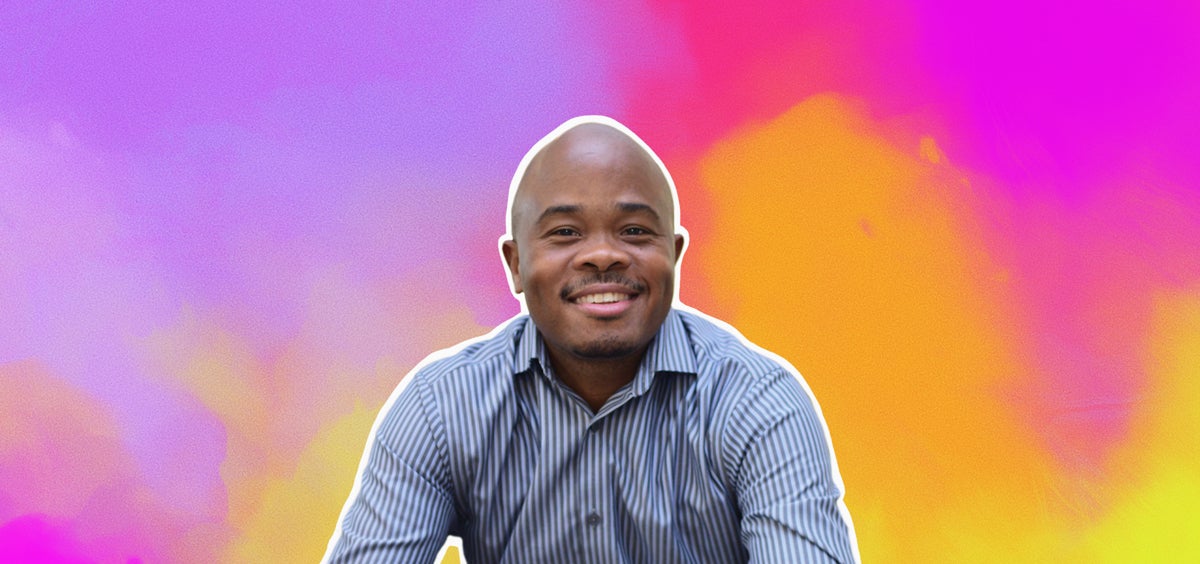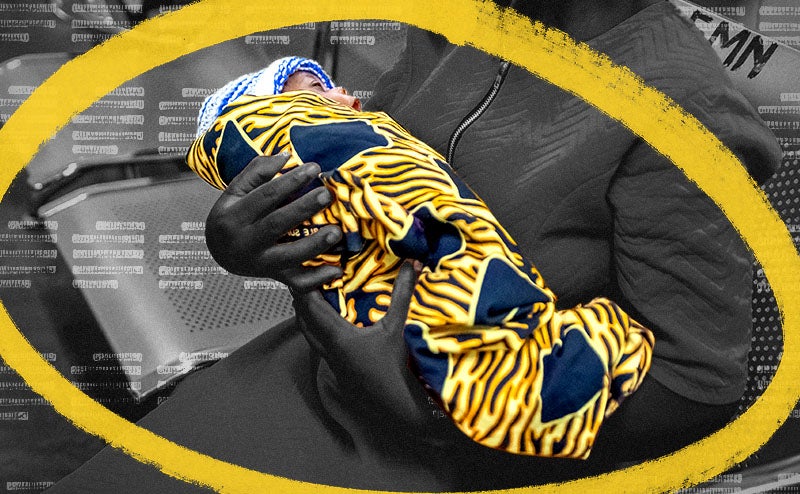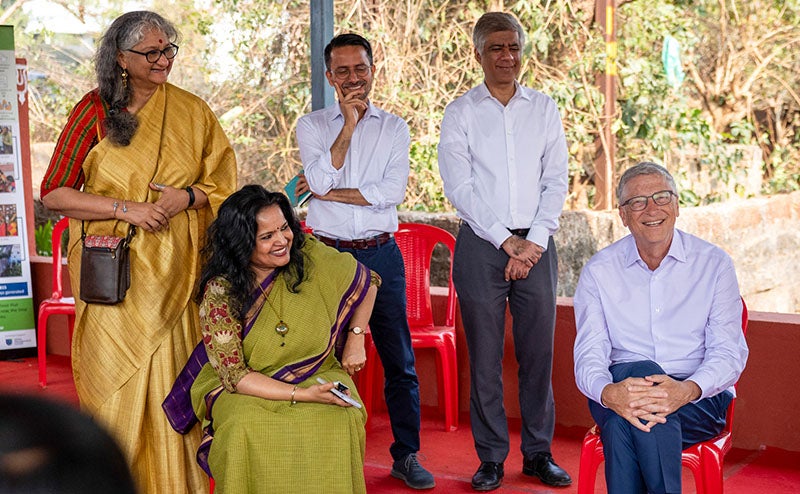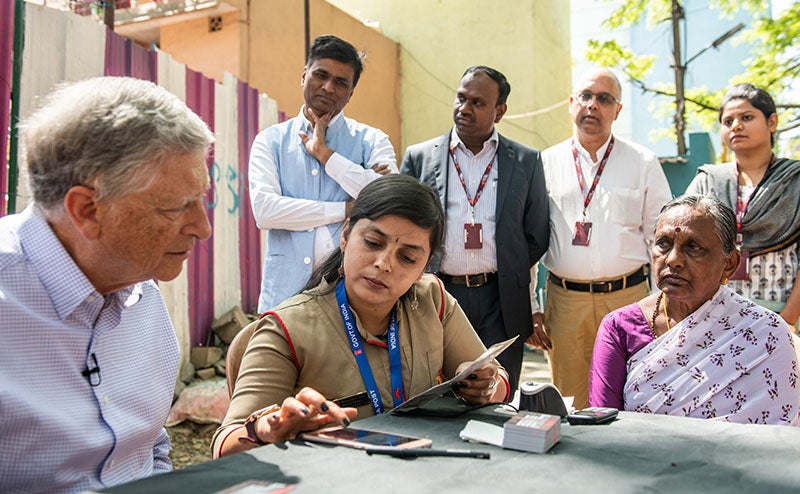Lately, I’ve found myself drawn to the kinds of books I would’ve liked as a kid.
Fred is a young entrepreneur from Ghana and the founder of the African Leadership Group, which is preparing the next generation of African leaders. He is also part of the Goalkeepers event happening later this month in New York City, which our foundation helped organize to accelerate progress toward the Global Goals. I’ll be at Goalkeepers as well, and I wanted to share Fred’s thoughts with you. — Bill Gates
I don’t mean to sound alarmist. But we’re sitting on a ticking time bomb—one that could unravel much of the progress in poverty reduction, healthcare, nutrition, and human rights, which will be a focus of the upcoming Goalkeepers report to be released next week.
Current projections from the UN show that Africa will be home to 4 billion people by the end of this century. Even more concerning is the fact that we will have the world’s largest workforce—larger than that of either China or India—by 2035. Without purposeful work, over 1 billion young Africans could be wandering cities looking for jobs. That is less than 6,000 days from now.
The political instability, security risks, mass migration, and poverty of 1.1 billion unhealthy, unemployed African youth is unimaginable.
There is, however, a way to convert this potential humanitarian crisis into a powerful opportunity. Africa’s looming population is a potential goldmine that contains a key ingredient needed for economic growth: human capital. Development economists have estimated that human capital alone—defined as the sum total of a population’s health, skills, knowledge, experience, and habits—explains between 10 and 30 percent of differences in per capita income across countries.
We’ve seen glimpses of what can happen when the ideas of young people in Africa are unleashed. The continent has given us Dr. Trebi-Ollennu, the Ghanaian scientist at NASA who developed the Mars Rover Robot and is pushing the frontiers of space science. It has given us Tidjane Thiam, the Ivorian CEO of Credit Suisse, one of the world’s largest banks, who was recently recognized by Euromoney as the 2018 Banker of the Year. It has given us Elon Musk, the South African entrepreneur who has revolutionized entire industries with companies like PayPal, Tesla, and SpaceX. It has given us Lupita Nyongo, the Oscar-winning actress from Kenya. It has given us Dr. Christiaan Barnard, the South African cardiac surgeon who performed the first heart transplant in the world in 1967.
These game-changers have emerged from Africa despite the backdrop of poor health and education they grew up in. Imagine, therefore, how many more world-class innovators and entrepreneurs could emerge from Africa if we took a deliberate approach to investing in the well-being and intellect of its young people. African youth, if educated and healthy, can provide the energy and ingenuity needed to solve many global challenges such as food security, climate change, infrastructure, gender inequity, urbanization, healthcare, education, and poverty reduction.
However, unlocking Africa’s immeasurable talent pool will not be straightforward. We have very little time—and very limited resources. This task seems as impossible as it must have seemed in 1961 when U.S. President John F. Kennedy set out to put a man on the moon within a decade, which became known as the “moonshot.” Moonshots are defined by three main characteristics: first, they are so ambitious that they sound impossible when initially envisioned; second, they require radical, unconventional solutions that shatter the status quo; and third, they lead to several unexpected benefits—in the same way that landing the man on the moon led to numerous technological innovations like satellite TV, GPS systems, and weather forecasting. Rapidly tapping into the potential of Africa’s youth—before it is too late—clearly fits these three characteristics and is therefore a bold moonshot we must embark on.
The quest for this exciting alternative future for Africa is what gets me up every day and drives me and my colleagues at African Leadership Group. We are contributing to this moonshot by developing at least 3 million game-changing African leaders, innovators, and problem-solvers in the next 6,000 days. These 3 million leaders and innovators will in turn help to create opportunity for the 1.1 billion Africans who will need it, while also creating opportunity for the entire world. And we’re using unconventional thinking to get there:
- Our student-driven, technology-enabled, peer-to-peer learning model is reliant on an abundant resource (brilliant students) and not on a scarce resource (qualified faculty). This makes it completely scalable: we are able to open a new campus in less than 3 months with less than 5 percent of the capital investment a traditional university would require. Re-imagining education is enabling us to produce globally competitive African talent at a speed, scale, and quality never before seen.
- Our practical, project-based learning approach is developing entrepreneurially-minded problem-solvers who will not only solve Africa’s greatest challenges and capture its greatest opportunities, but will create their own jobs. As artificial intelligence and robotics could make many traditional workers obsolete, policymakers should consider our model that teaches people how to learn so they can keep solving new problems as the world changes.
- Our innovative approach to student finance uses income-sharing arrangements to ensure that students graduate debt-free and only pay a share of their income to investors once they are employed. This “pay-it-forward” approach uses global capital markets to unlock the potential of African youth in a sustainable way.
What we are doing to rapidly develop entrepreneurial leaders in a high-quality, low-cost manner is just one example of the radical, unconventional thinking we need in order to enable Africa’s ambitious moonshot. We need similarly unconventional thinking as we approach other aspects: primary, secondary, and vocational education; healthcare; family planning; and women’s economic empowerment. We need new practice, not best practice: fresh, innovative approaches that will break from the norm and allow us to achieve rapid progress. It won’t be easy. We must resist the temptation to stick with safe, tested methods. Only by persevering and doing the hard things to break with convention do we stand a chance of achieving our shared goals. The world must invest in this moonshot in order to unlock the next wave of global innovation and progress for all of humanity.





